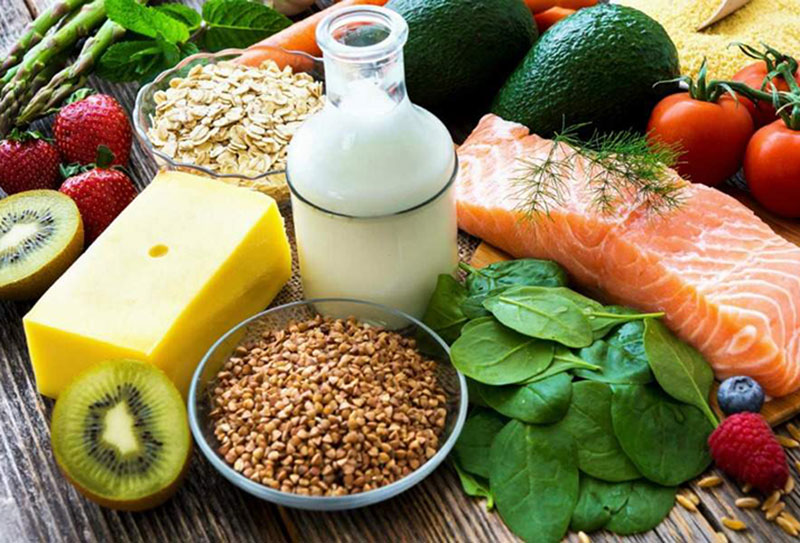Importance of minerals in Family Diets
 The general perception is that a nutritious diet should comprise foods rich in proteins, carbohydrates and vitamins. There’s a tendency to ignore all-important minerals while planning family meals as they are mistakenly believed to be insignificant.
The general perception is that a nutritious diet should comprise foods rich in proteins, carbohydrates and vitamins. There’s a tendency to ignore all-important minerals while planning family meals as they are mistakenly believed to be insignificant.
However, minerals are essential nutrients critical for healthy functioning of the human body. For instance, when a human body is burnt, the composition of the ash is phosphate 47.5 percent, calcium 25.3 percent, sulfate 11.00 percent, potassium 3.69 percent, and sodium1.12 percent.
Micro amounts of these heavy metals are essential for enzymatic and biochemical reactions within the human body. Here are some essential minerals which you must include in your children’s and family’s diet.
Iron
Iron is an essential mineral, deficiency of which causes anaemia with accompanying tiredness and lethargy. The daily iron requirement of the human body is 8.76 mg for men, 14.8 mg for women, 13.7-15.1 mg for children aged 2-11 years, and 16.3 mg for teens aged 12-19 years.
Iron-rich foods include red meat, shellfish, legumes, spinach, peas and beans. Iron present in vegetables takes more time to absorb because vegetables contain chemicals called phytates which bind with iron, slowing solubility and absorption.
Calcium
Amazingly, 99 percent of the human skeleton is composed of calcium, commonly found in milk and milk products. The daily requirement varies from 700 mg to 1200 mg. Deficiency causes lethargy, irritability, stunting, rickets, osteopenia and osteoporosis.
Phosphate
The minimum daily requirement of phosphate is 700 mg. As it is present in almost all foods, dietary deficiency is rare. However it can manifest in individuals who consume large quantities of aluminium-containing antacids. Deficiency causes weakness and osteoporosis.
Zinc
Zinc deficiency is associated with subfertility, reduced libido, diarrhoea, hair loss and skin lesions. It is present in foods such as seafood, oats, bran, meat, eggs and nuts. Deficiency can occur in cases of severe malnutrition or in individuals who are on prolonged, exclusive intravenous fluid maintenance. The daily requirement is 9 mg for men and 7 mg for women.
Copper
The human body needs copper in doses of 1.2 mg per day, commonly found in crabs, prawns, cereals and nuts. Deficiency is usually hereditary and causes stunting, brittle and kinky hair and mental retardation. Both breast and cow’s milk contain small amounts of copper, and supplementation is rarely needed in infants.
Chromium
Chromium is required by humans in very small amounts — 0.2- 50 µgms (microgram) per day. Meat, grains, fruits, vegetables, and spices provide this mineral. Chromium is essential for the proper utilisation of glucose, functioning of insulin and metabolism of cholesterol.
Selenium
Selenium is a trace mineral found in garlic, meat, seafood, cereals and grains. The daily requirement is 50-200 µgms. Selenium is a constituent of antioxidant enzymes. Deficiency is rare and may cause myopathy, arthritis and premature ageing. High doses of selenium are toxic and manifest as hair loss, depigmentation of skin, abnormal nails, tiredness and garlic odour.
 Iodine
Iodine
Iodine deficiency causes goitre, hypothyroidism, cretinism, decreased fertility, increased infant mortality, and mental retardation. Iodine is found in seaweed, dairy and fish. The daily iodine requirement in adults is 150 μg, children aged 0-6 months 90 μg, 7-12 months 110 μg, 1-8 years 90 μg and 9-13 years 120 μg. One teaspoon of iodised salt contains approximately 400 μg iodine.
Minerals and vitamins act in concert and perform hundreds of roles essential for the effective and healthy functioning of bodily organs. They help to strengthen bones, heal wounds, and bolster immunity.
The daily requirements of essential vitamins after the age of four years: folic acid 400 mg, niacin 20 mg, riboflavin 1.7 mg, thiamine 1.5 mg, Vitamins B6 2 mg B12 6 μg, C 60 mg, D400 IU, E 30 IU, and K 80 μg.
Capsules, tablets and tonics containing various combinations and strengths of these minerals are labelled “essential micronutrients” or “food supplements” and widely sold in the market. Pharmaceutical companies vie with each other with claims that their formulations will help make children put on weight and improve academic performance and adults will attain their ideal BMI — body mass index — weight divided by height, reverse ageing, greying, hair loss and boost immunity. The advertisements prey on fears of disease, poor pregnancy outcomes, and retarded physical and mental development.
However most of these pharmaceutical combinations are irrational. Iron, zinc and calcium are often formulated into one tablet or capsule. But as all three minerals compete for the same absorption site within the intestines, it’s likely that none of them will be absorbed by the body. Moreover with food fads promoting nutritional drinks, caution is advised as excessive consumption may result in over-dosage.
Therefore, please read the fine print on nutritional supplements carefully. Poll popping is not the prescription for good health and well-being. A balanced diet and exercise is the much better option to keep the human body fit and healthy and ensure it receives its daily dose of minerals.
(Dr. Gita Mathai is a Vellore-based paediatrician and author of Staying Healthy in Modern India)
















Add comment